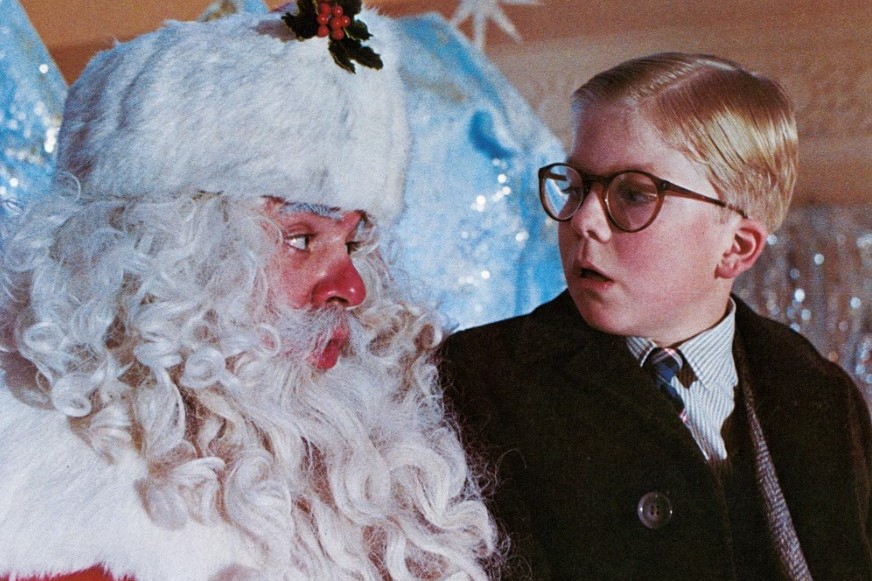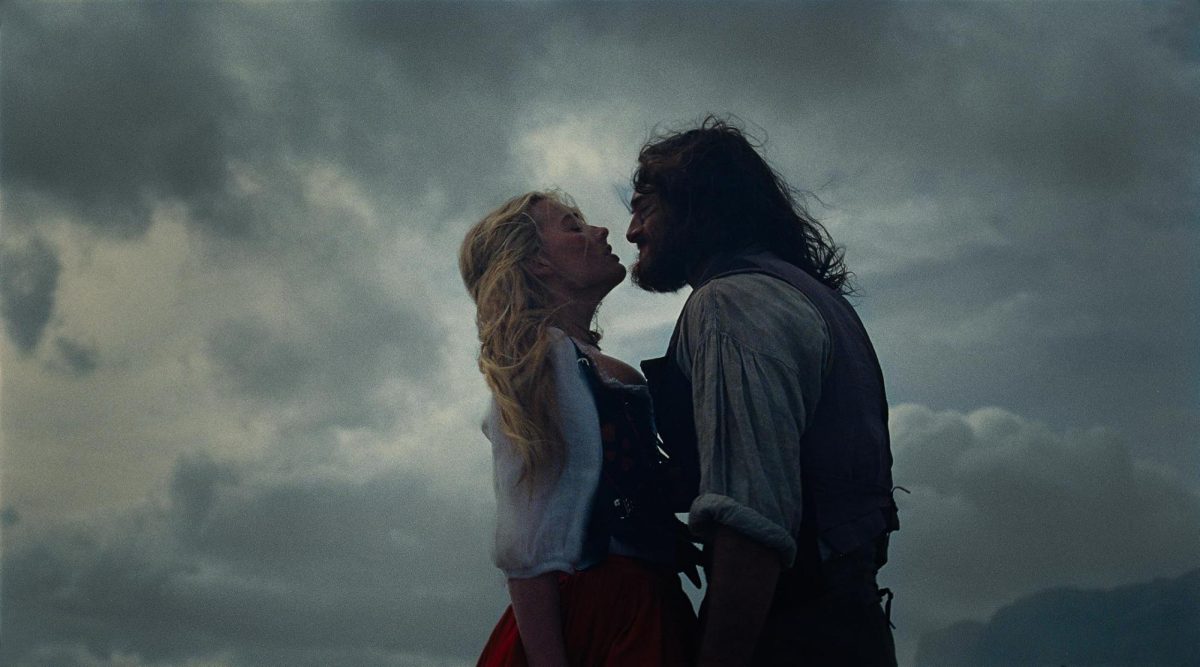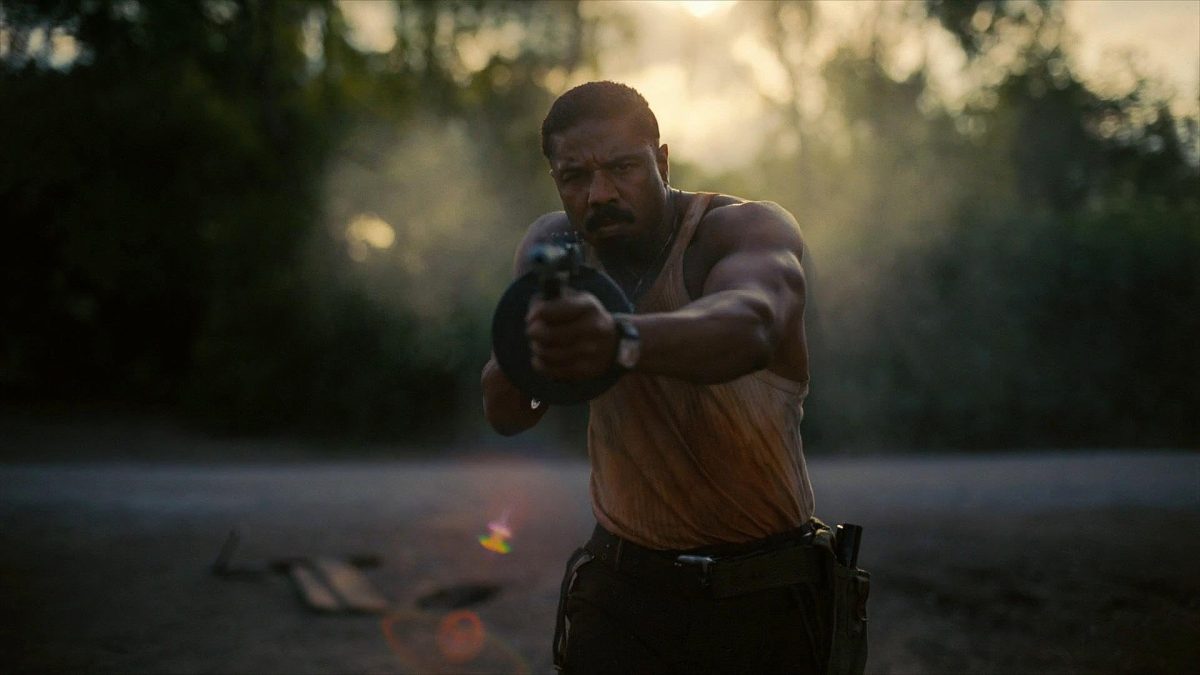To watch “A Christmas Story” (1983) is to experience hazy snippets of a middle-class childhood in late-1940s Indiana — but with a painfully snarky adult internal monologue (Jean Shepherd) in your ear.
Teeming with nostalgia, the classic holiday film sets itself apart from other selections in the Christmas zeitgeist with its effervescent wit and striking warmth.
As the film opens, the audience is introduced to Ralphie Parker (Peter Billingsley), a 9-year-old boy who embarks upon a seemingly dire journey to “indelibly” influence his parents to gift him a Red Ryder BB gun for Christmas.
Upon Ralphieʼs return home from gazing longingly through a storefront at shiny toy artillery, the audience is introduced to the fourth grader’s loving family.
Ralphie’s old man (Darren McGavin), a diehard football fan and “one of the most feared furnace fighters in northern Indiana,” is a foul-mouthed, traditionally masculine caricature of sweaty, middle-aged machismo.
Get The Daily Illini in your inbox!
According to Ralphie, the old man “works in profanity the way other artists might work in oils or clay.”
Ralphie’s mother (Melinda Dillon), who never seems to leave the stove for much longer than a few minutes throughout the film, fulfills her role as a soft, soothing spouse and a strict disciplinarian.
Ralphie and his younger brother Randy (Ian Petrella) are generally not very talkative at home. At meals, the old man waxes poetic about the Chicago Bears’ — or should I say the “Chicago Chipmunks” — performance at their most recent game, while mother consoles him from her eternal post by the stove.
On the second day of “A Christmas Story’s” canonic timeline, Randy and Ralphie are sent off to school, braving the Midwestern winter in thick, unforgiving coats.
Ralphie catches up with his buddies, who are presently amid a high-level intellectual debate surrounding the implications of pressing one’s tongue against a metal pole in the cold.
Schwartz (R.D. Robb), a somewhat antagonistic fourth grader, “triple dog dares” their friend Flick (Scott Schwartz) to test his hypothesis, resulting in arguably one of the most iconic scenes across all Christmas lore.
It seems as though almost every frame of this holiday classic holds several quotable moments. From the old man’s “major award” that endows the neighborhood with “the soft glow of electric sex,” to the “Scut Farkus affair, as it came to be known,” this surprisingly timeless and relatable piece of cinema is a veritable dreamscape of Midwestern baby boom nostalgia.
At one point in the movie, Ralphie lets “the queen mother of all bad words” slip and is forced to ruminate upon his actions with a bar of Lifebuoy-brand soap upon his tongue. Lifebuoy, according to Ralphie, was the worst punishment he could have faced. His first choice of mouth soap? Palmolive.
“I found Palmolive had a nice … after dinner flavor,” Ralphie asserted in his adult voice over. “Peaty, with a nice mellow smoothness.”
Roger Ebert, Alum of The Daily Illini, remarked that he shared in Ralphie’s soap preference when he reviewed the film in 2000.
“One of the details that ‘A Christmas Story’ gets right is the threat of having your mouth washed out with Lifebouy soap,” Ebert recalled. “Not any soap. Lifebouy. Never Ivory or Palmolive. Lifebouy, which apparently contained an ingredient able to nullify bad language.”
Although most of “A Christmas Story” is still delightful in the present day, it should not go without saying that there is an off-color gag near the end of the film wherein the employees at a Chinese restaurant exaggerate their accents while singing Christmas carols for the Parker family.
Moments like this in cinema demonstrate to us that there has been a gradual shift toward empathy and understanding throughout our culture, because a joke this ethnically motivated would immediately be removed from a film made today.
In his review, Ebert closed with the sentiment that the world depicted in “A Christmas Story” no longer exists — that the film was a moment frozen in time. He cited that children no longer shared in Ralphie’s passion for children’s radio programming and that Red Ryder BB guns were no longer accessible to children under the age of 16.
As someone who was born and experienced childhood after this review was written, I challenge Ebert’s message. Yes, not every aspect of the ʼ40s nostalgia quite rings true to my fragile — or, rather, “fra-GEE-lay” — Gen Z sensibilities, but I personally find most every second of this film to be massively relatable.
The stirring emotions voiced by the narrator — vibrating excitement, gut-wrenching fear, unbridled joy — seemingly come standard in the childhood package. “A Christmas Story,” like no other film, can help us remember and appreciate the poignant feeling of being a child.









